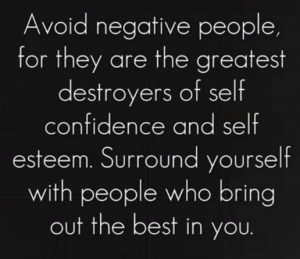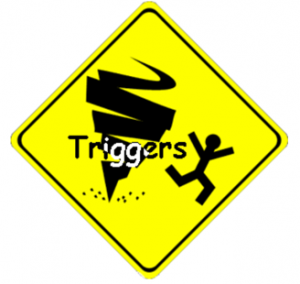Six Longer-Term Life Strategies
Staying Healthy and Managing Your Life
The strategies noted below are good strategies for recovering from suicidal thoughts/feelings or a suicide attempt. They are also good strategies for managing your life throughout adulthood.
Three Benefits You Can Get
- First, they can help you recover as fully as possible from this suicidal crisis.
- Second, they can prepare you to deal with any recurrence of suicidal thoughts/feelings, which sometimes ebb and flow like the tide.
- Third, they are simply good life strategies.
#1 Build – and Use – Your Support Network
Talk to one or more people in your network every day even if you feel like withdrawing. Support networks are always good to have. They don’t have to be real big and they aren’t just focused on helping in crises. Particularly when you are feeling suicidal it is important to have as many connections as possible, so that you are not too dependent on any one or two connections.
A support network is like a spider’s web. You can have connections to friends, family, neighbors, teachers, coaches, your faith community, community organizations, teammates or club members, etc. There is a surprising number of possible contacts in your network.

Some connections will be really strong and some will be light. As you are feeling suicidal this is a good time to (a) be assertive in talking with people in your network and (b) adding some new people, such as counselors/therapists, helpline counselors or online organizations dedicated to helping people deal with suicidal thoughts and actions.
Note. Many or most of the people in your network won’t have much experience with suicide and may be unsure of how to support you. That’s OK. As long as they are present and care about you, you can find your way together and it will be fine even if it feels awkward. This may sound weird, but you might need to reassure the people supporting you that they are doing OK. Really.
Also Note. Building and maintaining a support network is a life skill that we all need to lead the kind of life we want to live. It’s not just for when you are suicidal. Support networks help us deal with the challenges of life and lead the meaningful lives we want to live.
One More Note. Avoid spending time with people who are either (a) bad influences that may lead you into unhealthy situations or behaviors or (b) people who just don’t get what you are going through, may be judgmental or dismissive of how much pain you have been in or just want to give advice.

#2 Identify the Triggers that Can Lead to Feelings of Despair and Suicidal Thoughts
Triggers can be certain people or groups, using alcohol or drugs, anniversaries or special days, relationship stresses (including break-ups), school challenges or books/movies/music/internet sites with dark or depressive themes.
Avoid the triggers that you can avoid and plan ahead for how to deal with those that you can’t avoid. Sometimes triggers will surprise you, but in those cases you can respond quickly if you have been paying attention to what can trigger you.

3. Make a Safety Plan
Develop a set of steps that you can follow during a suicidal crisis. It should include contact numbers for the key people and organizations in your support network. That is everything from friends and trusted adults to helplines and emergency numbers like 911.
Share your plan with others so they are better prepared to help you.
You can also include notes to yourself that can provide guidance – you talking to you. Make up your own – in your own voice – but the following are examples.
“I got through this before even though I didn’t think I could. I’m glad I did and I can do it this time too.”
“Remember that suicide is a permanent solution to temporary problems – even the most severe ones.”
“I didn’t think people would care last time, but they did – and they helped.”
“Give yourself (me) 24 hours to see if you can find a better solution than suicide – I did it before.”
#4 Take Care of Yourself and Manage Your Stress
This is pretty straightforward, but sometimes takes a good deal of discipline or changes in habits (which is hard).
- Eat right. Taking care of yourself starts with eating right – including not skipping meals or eating compulsively. If your eating is out of control, get professional help because eating disorders are tough to conquer.
- Get enough sleep. This is really hard in high school, so this might be a tough challenge.
- Get enough exercise. “Enough” doesn’t mean you have to train for a triathlon. The big difference is between no exercise at all and a little or moderate exercise. You can also use relaxation exercises.
- Make sure you get some quiet time. As with exercise, the big difference is between a little quiet time and no quiet time. You can simply take a moment to pay attention to your breathing, meditate, review what you want to do with your day, or simply think positive thoughts (about yourself or others).
- Be very careful with your use of alcohol and drugs. Drugs and alcohol can interfere with your decision-making and problem-solving abilities, increase depression, leave you vulnerable to destructive impulses and simply replace more healthy behaviors.
- AND stay connected to your support network. If you are doing that, it’s easier to disconnect from unhealthy relationships.
Does this sound too “parenty” or prescriptive? If so, try to get by that – it’s really just common sense and these strategies can make a big difference (even a few of them). It’s about creating the lifestyle that you want – the one that will help you be as strong and resilient and vital as possible. These aren’t “shoulds.” They are sources of power – designed to help you become the author of your life and create the life you want.

#5 Continue, Restart or Develop New Activities and Interests
You may have stopped engaging in activities that were meaningful or fun for you, so it would be good to restart those activities. It would also be healthy to start some new activities. There may be some that you have always wanted to do or some that seem like they might be fun or meaningful.
Some experimenting might be in order, so you can try new things and continue if they work for you or move on to something else. There is an impressive array of things you can explore, for example volunteering, sports, various clubs, travel, cooking, performing arts, woodworking, computer/internet activities, etc.
#6 Get treatment for medical conditions, particularly depression
Depression is highlighted here because it is such a powerful contributor to suicidal thoughts, feelings and actions – and it is a medical condition that can be treated. The right medication along with time with a therapist or counselor is a powerful combination and one that you can use to get on top of depression and gain much more control over your life.
You may have other medical issues, such as injuries or chronic illnesses that also need medical treatment. Don’t delay. This is part of taking care of yourself, so that you are in the best shape possible to manage your life.
The most beautiful people we have known are those that have
known defeat, known suffering, known struggle, known
loss and have found their way out of the depths.
These people have an appreciation, an understanding of
life that fills them with compassion, gentleness, and a
deep loving concern. Beautiful people do not just happen.
Elisabeth Kubler-Ross
(Yes, this quote is repeated here – because it’s important.)